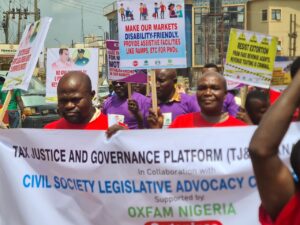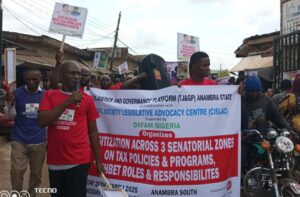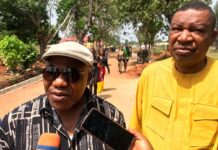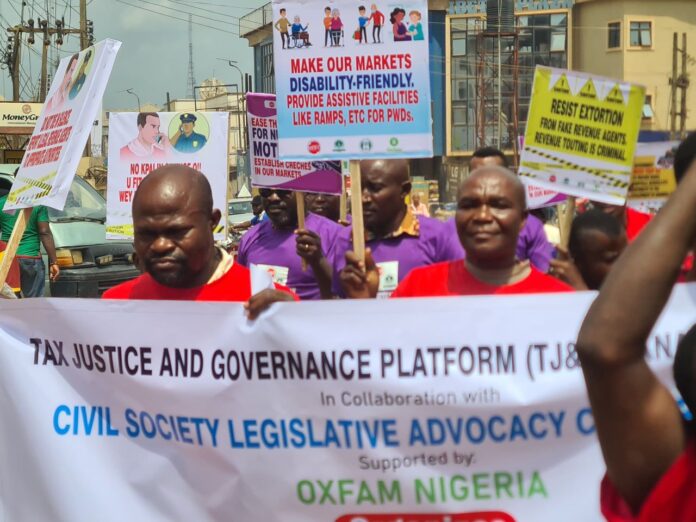Tax plays a big role in shaping the quality of infrastructure, healthcare, education and other services provided by government to its citizens.
Executive Director, Social and Integral Development Centre, Ugochi Ehiahuruike, stated this during a market sensitization programme at Nnewi for selected markets in Anambra South Senatorial District, as part of the Tax for Service campaign, implemented in collaboration with the Civil Society Legislative Advocacy Centre, (CISLAC) with funding support from Oxfam Nigeria.
Angel Network News (ANN) reports that
Ehiahuruike, represented by SIDEC’s Monitoring and Evaluation (M&E) Officer, Bruno Chimnaecherem, however regretted that most citizens are often confused about where the money goes, how policies are made, and what roles different stakeholders play in ensuring fair and transparent taxation.
“We are here today to clarify certain issues of confusions. Your presence shows a shared commitment to understanding and improving the tax system that affects our businesses, communities, and livelihoods.
“From the levies we pay in the markets to government policies that impact trade and services, this session offers an opportunity to ask questions, share concerns, and discuss ways to make the system work better.
“Our goal is to equip you with the right knowledge so that you can make informed decisions, engage effectively with policymakers, and ensure that tax policies are fair and beneficial to all,” she said.
In a presentation on developing markets charters of demand, a member of Tax Justice and Governance Platfrm, (TJ&GP) Arthur Iweanya, described citizen’s engagement and participation in governance processes as critical for sustaining the development of any society.
“These actions ensure the voices of the people are heard, and that they are able to take part in decision making about issues that affect them. This is critical in achieving lasting outcomes as the real needs of the people are addressed in ways that are suitable and adequate.
Iweanya identified steps towards the development of CCDs to include: the release of Budget Call Circulars by Government, community mobilization, needs assessment in separate community groups, market associations, and vulnerable groups, prioritization of at least three priority projects and harmonization of needs at the community, ward and market Levels.
“After those needs are presented to relevant Ministries, Agencies and Departments, MDAs, communities follow up with officials involved to ensure that the budget is implemented and that the desired requisite community/market development is achieved. They also present those needs to their lawmakers to facilitate the process.
A media consultant, Alfred Ajayi had earlier encouraged the traders to closely follow reforms and innovations in revenue collection system in the state especially the recent order from the governor prohibiting cash payment.
“Tax apathy in the past was caused by cumbersome processes in tax payment and inaccessibility of tax laws and policies to the citizens. We appreciate government for reforms that have taken place to simplify the payment system, which is targeted at ensuring that more people comply with their tax obligation.”
“However, you need to be abreast of these reforms and innovations so that you can engage government effectively. Remember that the essence of paying tax is for government to provide necessary services to the citizens. So, when you pay, you can also demand service from government,” Ajayi concluded.
The event climaxed with a road walk sensitizing traders in various markets around Nnewi on the need to pay taxes, levies and fees as well as insist on judicious utilization of the revenue collected from government.







